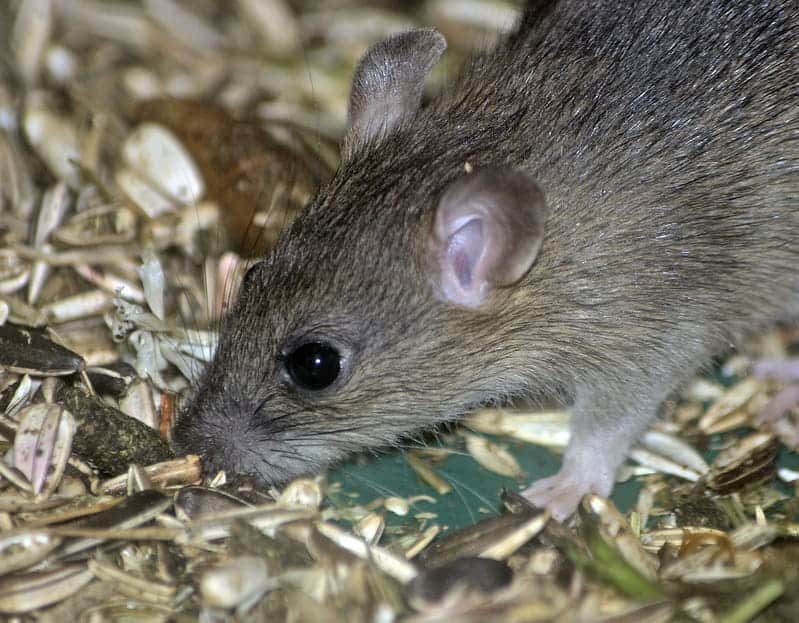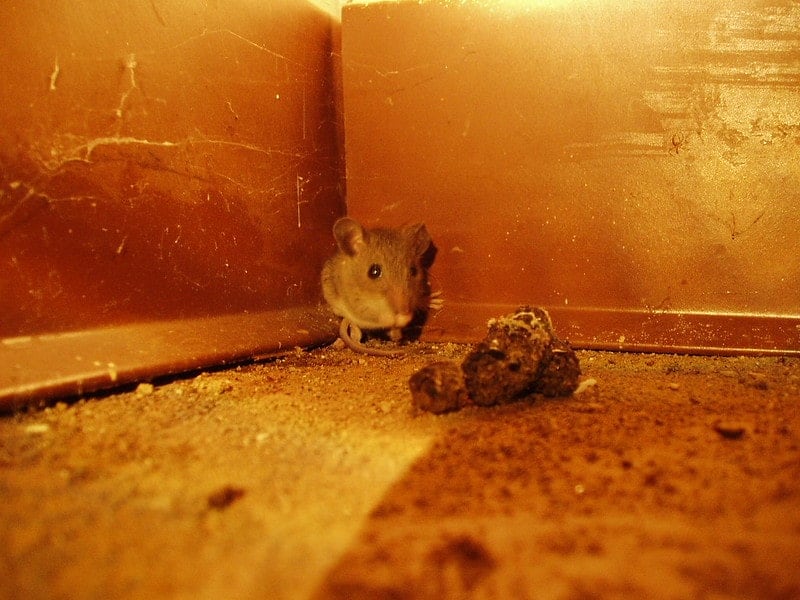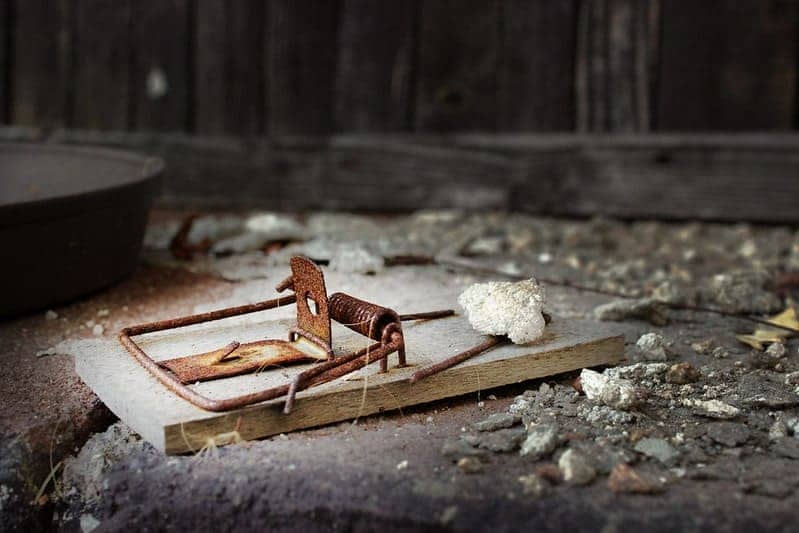How To Get Rid Of Mice In Attic
How to Get Rid of Mice in Attic: Detailed Identification & Removal Guide
![]()
Hi! Today, I want to discuss mice, how to identify them, and, most importantly, how to get rid of mice in attic. During my professional life, I met a lot of people with terrible attics: there were so many mice, so they were forced to spend several thousand dollars to keep mice out of attic. Mice is a really serious problem.
For example, do you know that one female mouse can reproduce from five to twelve babies every three-four weeks? In addition, they carry bacterias, eat food, and damage your building structures. Hence, if you are seeking the best way to get rid of mice in the attic or just want to prevent their appearance, this article is for you. Keep reading!
Contents
- 1 Removing Mice From Attic: Guide
- 1.1 Step 1: Identify Mice and the Entry Points
- 1.2 Step 2: Seal the Entry Points to Get Rid of Mice
- 1.3 Step 3: Trim Trees and Bushes to Keep Mice Out of Attic
- 1.4 Step 4: Install Mice Traps in the Attic and the House Interior
- 1.5 Step 5: Check the Traps Daily for Removing Mice from Attic
- 2 FAQ
- 2.1 What Are Signs of Mice in Attic?
- 2.2 How to Install Traps in the Attic for Mice Removal?
- 2.3 How to Get Rid of Mice in Attic With Blown Insulation?
- 2.4 Mice in Attic What Do They Eat?
- 2.5 How to Humanely Get Rid Of Mice In Attic?
- 3 How to Get Rid of Rodents in Attic: Share Your Recommendations
-
- 3.0.1 References:
-
Removing Mice From Attic: Guide
In this section, I provide you with the guide on how to get mice out of the attic, but before I want to discuss how they actually gain the entrance to your attic, and why the attics are always considered as the most vulnerable place for rodent infestation.
Mice lead an active lifestyle, which is why they learned not only to live in drain pipes and refit from one branch to another but also to adapt to various conditions. Therefore, they can easily climb to the roof and penetrate there within seconds. There are some of the reasons why mice prefer to live in the attic:
- Food: rodents used to live near the food sources, and the roof is the most obvious place where you keep flour, fruits, vegetables, cereals;
- Temperature: mice prefer cold weather and hate warm days. As such, as the summer comes, the risk of rodent infestation significantly rises;
- Many places to hide: mice like to find the small dark places where they can hide. If you have plenty of boxes and shelves, then, you've made your attic the ideal place for mice living;
- No humans and pets: as it used to be, the roof is not a place where you or your pets want to be. It is not a secret that mice like places with no people and pets.
The last reason why the attic is the most vulnerable place for the rodent infestation in the house is full insulation for mice in the attic. They will quickly find the possible ways to get out of there if something happens and make the tunnels.
No one can interfere with them, as well as find these tunnels. Now, you know why you need to pay special attention to the attic, it is time to find out what to do if you find mice in the roof. Follow this step by step guide!

Step 1: Identify Mice and the Entry Points
The first step is to identify whether you have mice in the attic. The first and the most obvious way to do it is to climb the roof and stand for a couple of minutes without moving and making no sounds. But that may not help. Did you hear the expression: "Be quiet as a mouse"? They came up with this for a good reason.
The mice are really very quiet rodents. First of all, this is due to their tiny size. And the second reason is that they like isolation. Therefore, as soon as they hear some extraneous sounds, they literally freeze and try not to make any noise. Below, I left the list of other possible ways to make sure that you have mice in attic:
- Droppings: all rodents have different droppings in size and shape, therefore, it is very easy to identify the type of rodent using only droppings. In the case of mice, you should look a trail of black pellets, as the rice grains;
- Find the urine areas;
- Look for the mice nests. Commonly, they used to create the nests from the fibrous material. For example, shredded paper;
- Find the mice burrows (one-inch holes in diameter);
- Mouse tunnels;
- Different chewed items.

In addition to finding the signs of mice in attic, you also need to identify their entry points. It is important to prevent future mice penetrations. What you should look for are the various gaps and holes. I recommend you to check the following places at first:
- Air-conditioner connections;
- The areas near water pipes;
- Doors and windows;
- Foundations gaps.
Step 2: Seal the Entry Points to Get Rid of Mice
Before we start to use various attic mice control remedies, it is important to seal the entry points you've just found. Many people used to skip this step, but, believe me, it is a really important action. First of all, it may help to prevent mice's appearance in the future. Secondly, other rodents can't break into your house while you get rid of mice. Thirdly, it prevents from appearing, as I called, the "false sense of victory."
Let me explain what I mean. It is a common situation when people think that they are getting mice out of attic when they just go through these holes outside and leave one gift for you — their little children. People mistakenly think that all mice are killed and stop to apply rodent control remedies. The truth is that mice have just left your house, but their children continue to secretly develop.
So, what you need to do after you discover all the possible entry points is to seal all these openings and gaps. For small holes, I recommend you to use steel and caulk wool scouring pads. In the case of large openings, you should apply sheet metal, concrete mortar, or heavy-gauge hardware.
Make sure that there are no gaps between doors/windows and the walls. If you notice some tiny holes, you can use water-resistant strips. I strongly do not recommend you to close these gaps by "chewing materials", like wood or plastic. Mice can chew them within minutes.

Step 3: Trim Trees and Bushes to Keep Mice Out of Attic
As I mentioned above, mice can adapt to live in different conditions very fast. One such example is their ability to climb the limbs. So, even if you close all the gaps between your house and outdoors, make sure that all windows and doors fit tightly, there are still a lot of chances, mice can penetrate in the attic.
One of them is by climbing trees and brushes. Therefore, it is important to trim all of them to cut the way for mice to get to the roof.
One tip, even if you do not have the trees that fit snugly against the walls of your home, anyway, I highly recommend trimming them. Mice are the well-known athletics of the animal world that can jump up about a foot in height. In addition, such precautions will help prevent the appearance of many bugs that can crawl through the branches right into your home.
Step 4: Install Mice Traps in the Attic and the House Interior
So, when you identify mice in attic, their entry points, close all the openings, and trim the trees, it is time to start catching mice in attic. Now, I will tell you about various types of mice traps you can safely use in your house. Although there are dozens of such traps, I only dwell on the most spread ones: snap, glue boards, electric, and live.
Snap traps are the most popular way to catch mice. Firstly, it is relatively cheap; the trap is easy to buy at any pet store. Secondly, it is completely safe for people and pets; snap traps do not contain any toxic substances. Thirdly, it is made of wood, a material that attracts mice.
However, despite all the advantages, the trap has many disadvantages. Among them is the fact that the trap has to be installed with your hands.
Be careful as it can damage your fingers. Also, for the trap to work, it is necessary that the mouse pulls the trigger. Keep in mind that the trap does not isolate the mouse in any way; the only way to remove it is to use your hands. By the way, do not forget that rodents are good carriers of various infections that are transmitted to humans, including hantavirus, so do not forget to use gloves.
Glue boards are plastic rectangles with glue on the surface. Every time a mouse hits it, it sticks and cannot break out. I have to say right away, if you disdain mice, then skip this variant of traps. It is likely that the mouse will still be alive, but with a large number of bone fractures, so the most gracious option would be to kill it immediately.
Related Post: Most Effective Mouse Traps Reviewed.
Electric traps are the newest and the most innovative way to kill the rodents. It uses electricity to, firstly, shock the mice, and then instantly kill them. In my opinion, if you decided to kill mice, it is the most humane way to do it, as death comes immediately.
The last trap example is live traps. They are used when people do not want to kill the mouse. There are many types of humane mice traps that can even catch up to 12 mice in time! The principle of action is very similar to snap traps: you just need to place bait to the trap, and when a mouse enters the box and presses the trigger, the doors will be closed automatically.
Step 5: Check the Traps Daily for Removing Mice from Attic
Despite the trap you set, it's very important to take the habit of checking them daily. Firstly, this way you can kill more mice in a shorter period. Secondly, after their death, mice emit a very unpleasant odor, which can fill your entire house and make it uninhabitable for a while.
The last recommendation about the traps is that you need to place them in several different locations. Use the mice signs you found during step one as the prompt. If there are a lot of places, then you can write the trap locations down not to miss one such place during the daily checking.

FAQ
I hope that the information above can help you get rid of mice in attic. Now, I want to summarize the points I have described in the previous section by providing quick answers to the most popular questions.
What Are Signs of Mice in Attic?
The first and the most obvious sign can be the noise of the mouse in attic scratching. Besides this, there are a lot of other signs identifying mice presence in the roof:
- Droppings and urine areas;
- Mice nests;
- Rodents tunnels;
- Leftover chewed items;
- Mouse burrows, etc.
How to Install Traps in the Attic for Mice Removal?
All mice see very poorly, and their main reference point in space is their whiskers. That is why they often adhere to walls or some other massive objects, and they try not to move far from them. My recommendation is to place traps there.
Related Post: Best Mouse Poisons Reviewed.
How to Get Rid of Mice in Attic With Blown Insulation?
For this, follow the steps described in the previous section. Try not to skip any step. Also, place a very tasty bait to the trap to pull them out of isolation. If my recommendations did not help you, then you should call the rodent control management company.
Mice in Attic What Do They Eat?
Mice eat whatever they find and can chew: paper, insulation, electrical wiring, clothes. But the most favorite food for them is high-protein substances.
How to Humanely Get Rid Of Mice In Attic?
The most humane way to get rid of mice and not to kill them is by using live traps. They look like steel boxes that just close the door when the rodent enters it and do no harm to the animal.
Mice can become a real problem for you; that is why it is important to identify and prevent rodent infestations. As we figured out, there are many reasons why the attic can be the best place for their living. To get rid of mice in the attic, you should follow the next steps:
- Identify the mice;
- Identify the entry points;
- Seal all openings;
- Trim the trees;
- Put the traps;
- Check them every day.
Have you ever faced the problem of mice in your house? If so, did you manage to get rid of them? Share your experience and recommendations in the comments section below!
References:
- Rodents (Centers for Disease Control and Prevention):
https://www.cdc.gov/rodents/index.html - Identify and Prevent Rodent Infestations (U.S. Environmental Protection Agency):
https://www.epa.gov/rodenticides/identify-and-prevent-rodent-infestations
How To Get Rid Of Mice In Attic
Source: https://pestcontrolhacks.com/how-to-get-rid-of-mice-in-attic/
Posted by: williamsbriver.blogspot.com

0 Response to "How To Get Rid Of Mice In Attic"
Post a Comment